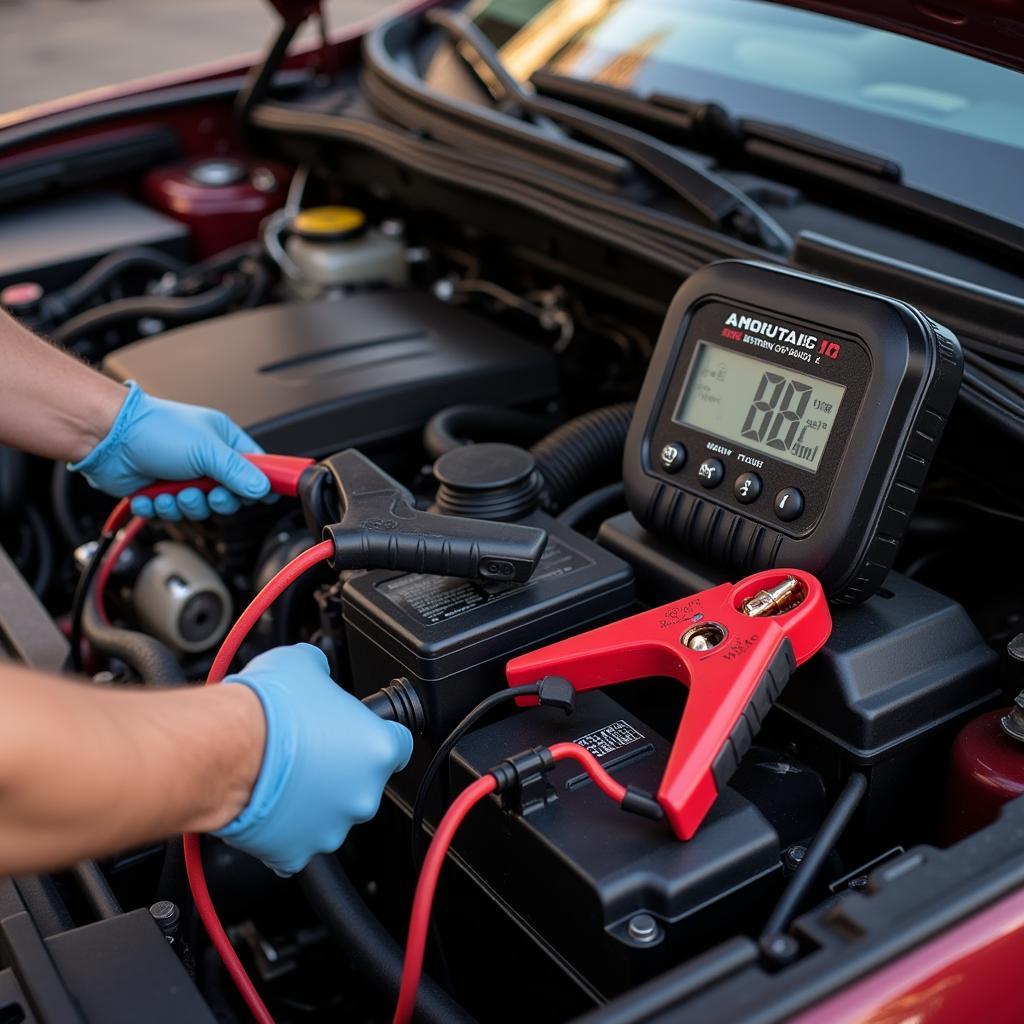“We Had A Lot Of Problems With The Car” – a phrase no car owner wants to utter, yet many find themselves saying. Whether you’re experiencing intermittent issues or persistent problems, car troubles can be frustrating and costly. This guide is designed to help you navigate the often-confusing world of automotive repair, empowering you to diagnose problems and make informed decisions about your car’s maintenance.
One of the most common mistakes car owners make is delaying maintenance. Regular oil changes, tire rotations, and fluid checks might seem insignificant, but they play a crucial role in preventing major problems down the line. Think of it as preventative healthcare for your car – addressing minor issues early on can save you from expensive repairs later.
Decoding the Language of Your Car: Understanding Warning Lights
Modern cars are equipped with an array of sensors and warning lights designed to alert you to potential issues. Ignoring these warnings is akin to hitting the snooze button on your alarm clock – you might buy yourself some time, but the problem will likely worsen.
Here’s a quick rundown of some common warning lights and their potential meanings:
- Check Engine Light: This ubiquitous symbol could indicate anything from a loose gas cap to a serious engine problem.
- Battery Light: This light signals a problem with your car’s charging system, often indicating a dying battery or a faulty alternator.
- Oil Pressure Warning Light: This light warns of low oil pressure, which can lead to catastrophic engine damage if ignored.
- Brake System Warning Light: This light can indicate low brake fluid, worn brake pads, or a problem with your ABS system.
Remember, this is not an exhaustive list. If any warning light illuminates on your dashboard, consult your car’s owner’s manual or a trusted mechanic immediately.
Common Car Problems and Their Potential Causes
From strange noises to sluggish performance, car problems can manifest in various ways. Here are some common issues and their potential causes:
1. Engine Problems
- Rough Idling or Stalling: This could be caused by spark plug issues, a dirty fuel filter, or a faulty mass airflow sensor.
- Overheating: Common culprits include a coolant leak, a faulty thermostat, or a malfunctioning radiator fan.
- Loss of Power: This could be a sign of a failing fuel pump, a clogged catalytic converter, or a problem with the turbocharger (in turbocharged vehicles).
2. Electrical System Problems
- Battery Draining Quickly: This could be due to a parasitic drain, a faulty alternator, or simply an old battery.
- Dim or Flickering Lights: This issue often points to a weak battery, a failing alternator, or a wiring problem.
- Malfunctioning Power Windows or Locks: Faulty switches, a blown fuse, or a problem with the car’s body control module are common causes.
3. Transmission Problems
- Slipping Gears: Low transmission fluid, worn clutch plates (in manual transmissions), or a faulty solenoid valve are potential culprits.
- Rough Shifting: This could be due to low transmission fluid, a faulty shift cable, or a problem with the transmission control module.
- Transmission Fluid Leak: Common leak points include the transmission pan gasket, the torque converter seal, and the transmission cooler lines.
This list is not exhaustive, and diagnosing car problems often requires specialized knowledge and equipment.
“It’s essential to remember that every car is different,” says John Smith, Senior Automotive Technician at XYZ Auto Repair. “While online resources can be helpful for understanding potential causes, a professional diagnosis is crucial for identifying the root of the problem.”
Empower Yourself: Tips for Troubleshooting Car Problems
While some car problems require professional attention, there are several things you can do to troubleshoot issues yourself:
- Check the Owner’s Manual: This often-overlooked resource provides valuable information about your car’s features, maintenance schedules, and potential warning lights.
- Inspect the Battery Terminals: Corrosion on the battery terminals can lead to starting problems and other electrical issues. Cleaning the terminals with a wire brush and baking soda solution can often resolve the issue.
- Check Fluid Levels: Ensure your car has adequate levels of engine oil, coolant, brake fluid, power steering fluid, and transmission fluid.
- Inspect Belts and Hoses: Cracked, brittle, or loose belts and hoses can lead to engine overheating, power steering failure, or other problems.
If you’re uncomfortable performing these checks yourself, don’t hesitate to consult a trusted mechanic.
Preventing Future Problems: Maintenance Matters
Regular maintenance is the key to preventing many car problems. Following your car’s recommended maintenance schedule, as outlined in the owner’s manual, can significantly extend its lifespan and save you money in the long run.
Here are some key maintenance tasks:
- Regular Oil Changes: Engine oil lubricates moving parts, reduces friction, and helps cool the engine.
- Tire Rotations and Pressure Checks: Rotating tires ensures even wear and prolongs their lifespan, while maintaining proper tire pressure improves fuel efficiency and handling.
- Brake Inspections: Regular brake inspections ensure your brakes are in optimal working order, keeping you safe on the road.
- Fluid Flushes and Replacements: Over time, fluids like coolant, brake fluid, and transmission fluid can degrade, reducing their effectiveness.
Remember, prevention is always better – and cheaper – than cure when it comes to car maintenance.
We’re Here to Help: Get Expert Assistance with Your Car Problems
Dealing with car problems can be stressful, but remember, you’re not alone. If you’re experiencing issues with your car, the team at AutoTipPro is here to help. Our experienced technicians can diagnose and repair a wide range of automotive problems, providing you with peace of mind on the road.
Contact us today at +1 (641) 206-8880 or visit our office at 500 N St Mary’s St, San Antonio, TX 78205, United States.
Looking for a reliable car? Check out our guide to the best car without problems and recalls. Having trouble with your Mazda CX-5? Our article on car problems mazda cx 5 provides insights and solutions.






Leave a Reply